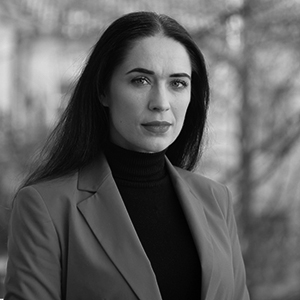Hanna Shelest, Director of Security Programs at the Foreign Policy Council “Ukrainian Prism” for ekathimerini.com
Odessa was a cradle of the Greek War of Independence. The old building of the Filiki Etairia is still open to visitors in the downtown area of the city, currently serving as the home of the Hellenic Foundation. Two-hundred-and-one years ago, it witnessed long conversations on national identity, dignity, and freedom – similar themes to the ones that are at the forefront today: the freedom to choose partners and alliances, the dignity of self-determination, the call to defend national identity in the face of foreign aggression.
A few steps from the Filiki Etairia building, the life of this bustling port city is continuing as usual – bars and restaurants are open, locals are discussing prices at the market and pandemic restrictions, the season’s first tourists are already arriving, despite everything, for weekend getaways. But you can feel the nervousness in the air: the talk of a possible invasion, the concerns of businesspeople about the costs of the de facto blockade imposed by the Russians on shipping and export activity.
But people are not panicking. On Sunday, activists organized a march of unity – no political party flags, just national ones. The municipality is holding regular meetings planning for emergency communications, food supply and access to bombproof shelters in case of attack – something that still sounds totally surreal against the backdrop of the still-ordinary daily life of the city.
In 1940, Greeks said “Όχι” to an Italian ultimatum and fought to defend their independence. Today, Ukrainians are saying their own “Όχι” to the imperial pretensions of Moscow and to the threat they pose to Ukraine’s territorial integrity and sovereignty. And the aims of the Kremlin go beyond Ukraine. The demands made in December to NATO and the USA constitute an ultimatum to Western democracies – an attempt to dissolve NATO or at the very least turn some allies into second-class members. Vladimir Putin hopes to cause fissures in the Alliance and make it shrink from the defense of its fundamental principles.
Eight years ago, war and occupation came to Ukraine, resulting in 2 million internally displaced people, 14,000 killed, 200,000 Russian forces on the Ukrainian border. International media headlines ask: Will Russia invade Ukraine? The fact is that Russia already has. In February 2014, when Ukraine was committed to defense neutrality and Ukrainians were clamoring for EU (not NATO) membership, Russian forces annexed Crimea and instigated a rebellion in Eastern Ukraine.
Eight years ago, Ukraine chose dignity. We turned against kleptocracy and failed promises in favor of human rights, the rule of law, European values and personal security. Moscow insists that NATO enlargement is the cause of its actions. But the last Eastern European states to join the Alliance were Romania and Bulgaria back in 2004. Ukraine’s neutrality did not stop Russian aggression in 2014, and it’s unlikely to prevent it now.
Since the start of the year, Ukraine has endured cyberattacks, shortages in gas supply, disinformation campaigns, dozens of violations of the cease-fire agreement, a de facto naval blockade restricting access to Ukrainian ports in the Black Sea and the Sea of Azov, and much else. All because my country refuses to be a buffer, a gray zone, and wishes to return to the European family of nations, where it historically belongs.
President Putin likes to publish long historical articles manipulating facts and expropriating other nations’ history. But to read Ukrainian history – a story of struggle for independence and development, of deep connections with the French, the Italians, the British, the Greeks, the Swedes – is to realize the Big Lie in Moscow’s claim that Ukraine belongs to them.
In the last few days, I have received dozens of questions from my friends around the globe – am I packing? Am I preparing to leave my home city of Odessa? I am not. I don’t want to pack bags in panic. I want to pack them for business trips to Brussels or Berlin, or for my holidays in Athens and Rome.
As a security analyst, I see 10 different scenarios of invasion, as well as 20 scenarios of hybrid actions against Ukraine. As a citizen, I trust in my people and the Ukrainian Armed Forces, and I want to trust in our international partners – trust that they will not be afraid to support us, while Ukraine is standing up for our shared values and freedoms.



